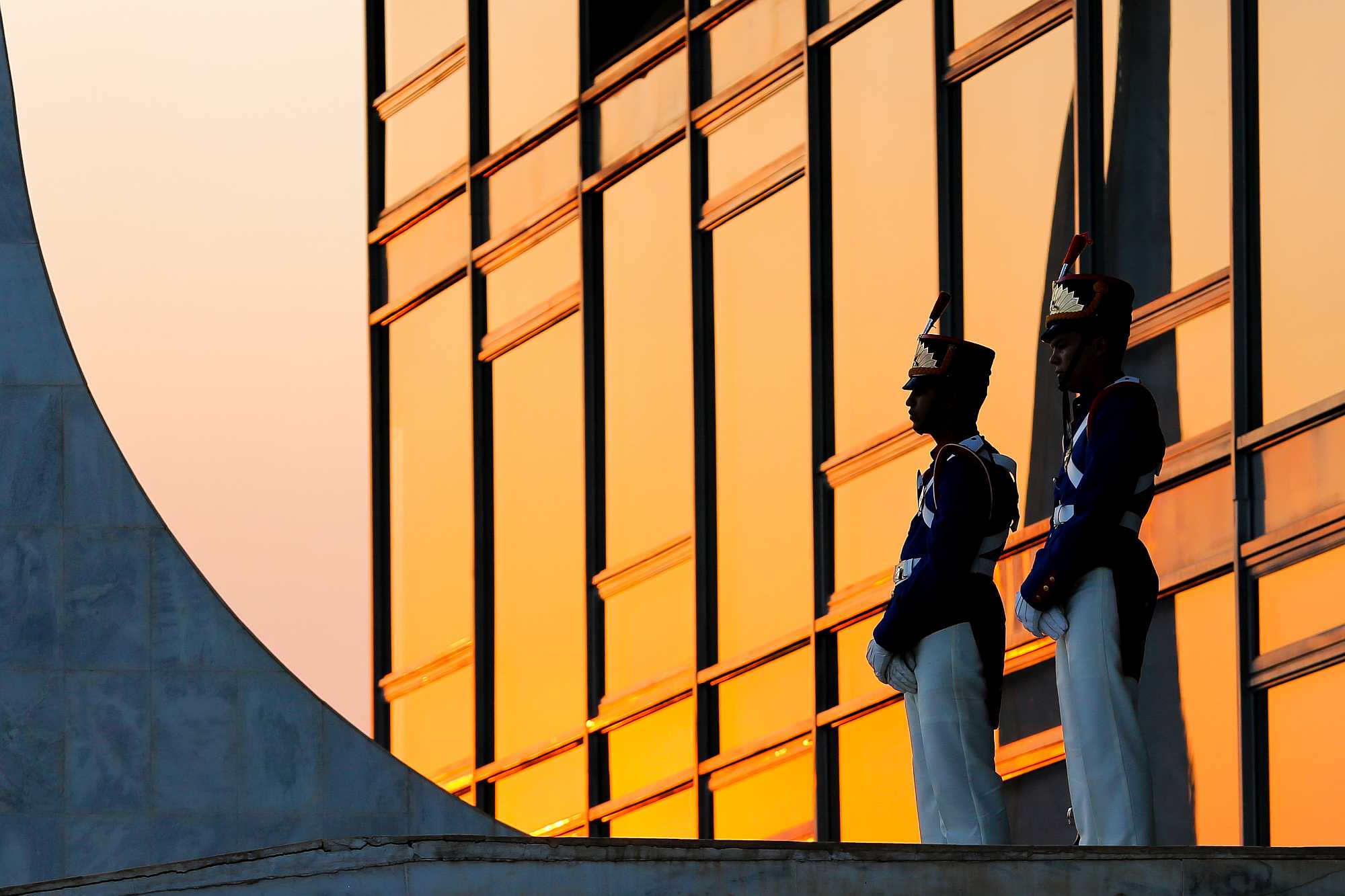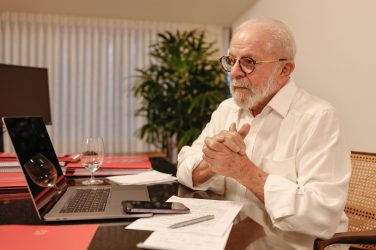Another crack around and within Michel Temer’s administration emerged as a Brazilian Senate Committee approved a Constitutional Amendment proposal that calls for free elections to be held in the case the presidency becomes vacant within the first three years of the presidential mandate.
The premise of the amendment would mean that if Temer resigns, is impeached or is removed, then free elections will be convened as opposed to the National Congress selecting a president as the Constitution currently stipulates.
Although it falls far short of calling for Temer’s removal, Brasil 247 reported that Senator Lindbergh Farias celebrated the proposal as being “a gigantic victory,” one that, “gives breath to the free elections movement.”
He added that the amendment’s proposal caught Temer’s administration “by surprise” and increases the chances that it may be approved by a full Senate vote.
Lindbergh also commented that parliamentarians who form part of Temer’s base also voted in favor of the constitutional amendment.
Paraná Institute Research released its latest poll indicating that 90.6 percent of Brazilians are in favor of immediate free, democratic elections.
Easier Prosecution
The Brazilian Senate concluded that no one is above the law — or almost no one — as lawmakers approved a draft constitutional amendment that, if passed, would remove the political immunity for crimes including corruption that thousands of officials in public office have enjoyed until now.
The proposal, which was first voted on in the Senate in April and must still be approved by the lower house of Congress before any changes to the constitution can be made, would not apply to the president, vice president or heads of the Senate, lower house and the Supreme Court.
Up until now, governors, mayors, regional deputies, councilors, judges have been shielded by privileges that protect officials from facing prosecution in the penal system for crimes including robbery, corruption and money laundering.
The privileges have meant any cases against these officials would have to be dealt with in the country’s top court in order to remove their immunity before being processed in a lower court.
In Brazil, plagued by widespread government corruption scandals, weighed down by a bureaucratic justice system, chronic delays in judicial processing have been a problem for many years.
Recent investigations connected to the bribery scandal in the state-run oil company, Petrobras, that have embroiled more than 100 politicians, have brought high-profile attention to the systemic problem of government corruption.
President Michel Temer is also among those being investigated for crimes of corruption, obstruction of justice and illicit association.
Nevertheless, the approval of the proposed reform in the Senate comes as somewhat of a surprise since leaked wiretap recordings revealed last year that one of the key motivations among political elites for the impeachment — widely condemned as a parliamentary coup — of former President Dilma Rousseff was to shield politicians from facing prosecution in far-reaching corruption investigations.
Through approving the proposed amendment, the Senate voted in favor of altering the protocol for handling official cases, stripping immunity privileged from nearly 34,000 officials including lawmakers, attorney generals, mayors, regional deputies, counselors, judges, ambassadors, military commanders and others at both the national and regional levels.
Through the bill, exceptions for the president, vice president, Senate and lower house chiefs, and head of the Supreme Court would continue to enjoy the privileges and be tried through the federal court system.
“In this way, all authorities and public officials who now are beneficiaries of the privileges will respond to processes initiated in the first instances of common justice,” the Senate announced in a statement.
The issue of immunity gradually came to light due to the long delay most cases have been met with in the courts. At least five years were allowed for any politician’s case and most resulted in dismissal or a punishment which never was carried out.
According to a study by the Getúlio Vargas Foundation, between 2011 and 2016, fewer than 1 percent of actions against Supreme Court authorities resulted in conviction. An additional 68 percent were inconclusive.
Senator Alvaro Dias of the Green Party, who sponsored the bill, has referred to the initiative as campaign against an “institute of impunity,” defending his proposal saying, “we are all equal before the law.”
US$ 3.2 Billion in Fines
J&F Investimentos, the parent company of JBS SA, a Brazilian company with international acquisitions making them the largest meatpacking company in the world, settled in court to pay US$ 3.2 billion in corruption fines following their admission to engaging in bribery as part of a plea bargain testimony.
In their testimony, JBS Chairman Joesley Batista and Chief Executive Wesley Batista, who stepped down from their positions last week, admitted to paying US$ 150 million to nearly 1,900 Brazilian politicians and government officials.
The US$ 3.2 billion dollar fine now slapped on J&F Investimentos, will be paid over the course of 25 years.
The fine surpasses the record setting US$ 2.6 billion paid by the Brazilian construction company Odebrecht on similar corruption charges.
The bribes allowed the company to secure billions in funding that allowed them to acquire numerous international brands. In the course of their acquisition spree, JBS became the world’s largest meatpacking company, and is one of the top-three meat producers in the United States.
The JBS Chairman Joesley Batista and Chief Executive Wesley Batista are managing to avoid jailtime through a plea bargain by cooperating with prosecutors and handing over key pieces of evidence in the ongoing corruption investigations of Brazilian politicians.
Coming on the tail of Odebrecht investigations, The Batista brothers’ plea bargain testimony has been at the center of investigations into Brazilian President Michel Temer, and has sent the unelected government into a tailspinning crisis.
Most notably, in a damning wiretap release, Temer was heard approving monthly bribery payments in a recorded conversation with Joesley Batista. The scandal led to an escalation of protests and widespread calls for Temer to step down. In spite of the evidence mounted against him, the unelected and unpopular right-wing president has refused to resign.
Although the Batista brothers’ testimony claims that they only engaged in bribery within Brazil, the international scope of JBS operations opens them up to a situation similar to Odebrecht’s.
Following investigations in multiple countries, Odebrecht was found to have been paying bribes to at least 12 different countries, in a scandal that has now implicated politicians around Latin America.
teleSUR














